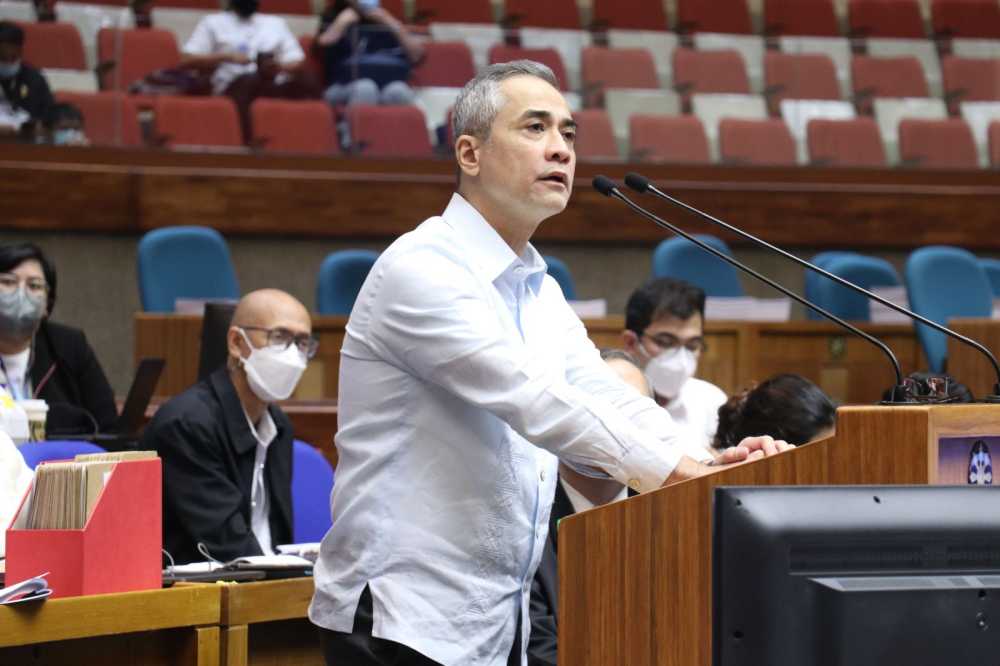MAKATI City 2nd District Rep. Luis Campos Jr. announced that Congress has earmarked P1.25 billion for the Cancer Assistance Fund (CAF) in the 2024 national budget.
This signifies a substantial increase from the previous year’s allocation.
Significant Increase in Funding
Campos serves as one of the vice chairmen of the House Committee on Appropriations. He emphasised that the newly allocated amount of P1.25 billion is a significant boost. P500 million was previously allocated for the CAF in 2023. This surge in funding underscores Congress’ commitment to supporting initiatives aimed at combating cancer and assisting affected individuals.
The increased funding reflects a recognition of the growing prevalence of cancer cases in the Philippines. The need to strengthen resources for prevention, diagnosis, and treatment is another reason for increased funding. Moreover, it acknowledges the socioeconomic impact of cancer on individuals and families, necessitating comprehensive support mechanisms.
Direct Benefits for Cancer Patients
Highlighting the purpose of the CAF, Campos stressed that the fund aims to benefit cancer patients directly, individuals living with cancer, survivors, and those at high risk. The fund will cover a range of services, including cancer screening, early detection, diagnosis, treatment, and related care components. Moreover, it will encompass necessary diagnostics and laboratories catering to eight priority cancer types identified by the Department of Health (DoH).
This holistic approach to cancer care underscores the importance of addressing not only the medical aspects of the disease. It is also crucial to give notice of the psychosocial and financial challenges faced by patients and their families. By providing comprehensive support, the CAF aims to improve the quality of life and outcomes for individuals affected by cancer.
Priority Cancer Types
The eight priority cancer types identified by the DoH include the following. They are breast cancer, childhood cancers, gynecologic cancers, liver cancer (including colorectal and other digestive tract cancers), head and neck cancers (including thyroid), lung cancer, and prostate, renal, and urinary bladder cancer. The CAF aims to address the most pressing needs within cancer care and treatment by focusing on these priority areas.
Each cancer type presents unique challenges in prevention, early detection, and treatment. The allocation of funds for these specific areas reflects a strategic approach to resource allocation. This ensures that interventions are targeted and effective in addressing the burden of cancer across different population groups.
Accessing the CAF
Individuals seeking assistance from the CAF can avail of its services through DoH-run hospitals. It ensures those in need have access to essential cancer-related support and resources. This decentralised approach aims to make cancer care more accessible to communities nationwide, particularly to underserved populations.
By leveraging existing healthcare infrastructure, the CAF can reach individuals in remote areas and urban centres alike, addressing disparities in access to cancer services. Additionally, partnerships with local governments and community organisations can further extend the reach of the CAF.
National Cancer Awareness Month: A Timely Reminder
With February being National Cancer Awareness Month, the allocation of funds for the CAF serves as a timely reminder of the ongoing efforts to raise awareness about cancer prevention, detection, and treatment. It provides an opportunity to engage the public in discussions about the importance of early detection, healthy lifestyle choices, and support for cancer patients and survivors.
Awareness campaigns, educational initiatives, and community outreach programs play a crucial role in empowering individuals to take charge of their health and seek timely medical attention. By harnessing the momentum of National Cancer Awareness Month, stakeholders can mobilise resources and advocate for policies that promote cancer prevention and control.
PhilHealth’s Role in Private Hospitalization Costs
In a related development, Speaker Ferdinand Martin Romualdez has highlighted the need for the Philippine Health Insurance Corp. (PhilHealth) to shoulder more of the costs associated with private hospitalisation. Romualdez emphasised the importance of expanding PhilHealth members’ benefits to alleviate the financial burden on constituents.
Addressing Constituents’ Concerns
Acknowledging the concerns raised by constituents regarding PhilHealth coverage, Romualdez expressed his commitment to finding a solution to increase the amount shouldered by PhilHealth in billing and doctors’ fees. He emphasised the urgency of action, noting that a legislative approach would be time-consuming. Romualdez’s pledge to address these concerns underscores the government’s commitment to improving healthcare accessibility and affordability for all Filipinos.
Conclusion
The Philippines prioritises healthcare by allocating funds for the Cancer Assistance Fund and considering ways to improve PhilHealth coverage. This underscores a commitment to public health and supporting those affected by cancer. With a focus on prevention, early detection, and comprehensive care, policymakers aim to reduce the burden of cancer and ensure equitable access to healthcare for all Filipinos. As National Cancer Awareness Month approaches, collective efforts across sectors can lead to significant progress in combating cancer and improving outcomes nationwide.

